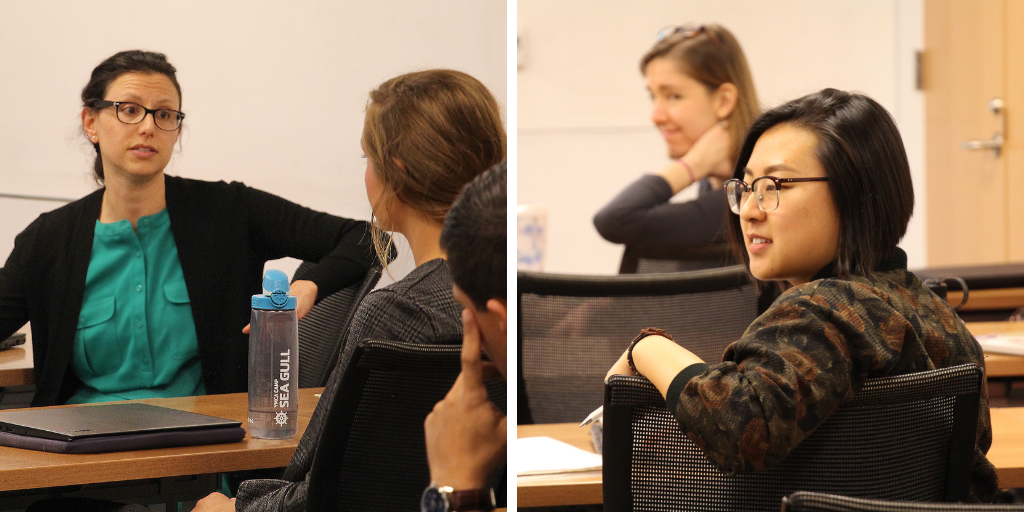Social Science Meets Health Innovation in New Hands-on Course
October 24, 2018
Highlights from the Bass Connections Annual Report

Launched in 2018, the Social Science Research Lab offers a new way for undergraduates to engage in project-based learning about social science methods and their application to societal problems.
The pilot course, which was co-led by Jessica Sperling and Will Ellaissi, was conducted in partnership with the Duke Institute for Health Innovation (DIHI). Students learned about topical issues related to healthcare administration and innovation, engaged with Duke Health guest speakers and explored techniques and practices in research and evaluation.
Working in teams, students developed research and evaluation proposals for three DIHI projects: predicting cardiogenic shock; utilizing patient-reported outcomes; and addressing provider burnout. The teams presented their work to stakeholders at the end of the year.

The 13 students, who represented a range of class years and majors, provided overwhelmingly positive feedback regarding the course.
The opportunity to work with a real-life partner is very valuable and is something that I have talked about in cover letters and job interviews already. –Student participant
Through independent studies, four students will continue to work with one of the partners to implement the evaluation plans.
Course Offering for Spring 2019
This spring, the Social Science Research Lab will again be partnering with DIHI to offer Evaluating Health Innovation (EHD 290S-02, SS), co-taught by Jessica Sperling and Jonathan O’Donnell.
The course is intended for undergraduates, ranging from first-years to seniors, who are interested in applied research. It will prepare students for future research endeavors at Duke and beyond, including participation in Bass Connections projects, and will be held on Tu/Th 1:25-2:40 p.m.
The course will include a dual focus on 1) methods and practices in social science research, especially community-engaged research and applied evaluation practice; and 2) topical issues related to the partner, including: healthcare as a cause and consequences of social problems, evolution of healthcare financing and administration and innovation’s potential role in solving healthcare challenges. Throughout the semester, students will apply their research and evaluation training through research/practice partnerships with DIHI health innovation projects. By the end of the semester, students will develop responsive applied research/evaluation proposals for DIHI-supported health innovation projects.
Students who take this course will have the option of enrolling in a second-semester component in Fall 2019. In this second-semester option, students will implement the evaluation research projects developed in the spring course with their applied partners.
This course will count as an elective for the Innovation & Entrepreneurship Certificate and the Science & Society Certificate. It can also serve as a Civic Engagement & Social Change Certificate elective if aligned with a student’s pathway within the certificate. This community-engaged course is sponsored by Duke Service-Learning.
For more information about this course and the Social Science Research Lab, contact Jessica Sperling.
Learn More
- Browse the Bass Connections 2017-18 Annual Report.
- Check out additional Bass Connections courses.
- Read more about the Bass Connections in Education & Human Development theme.
Photos courtesy of Jessica Sperling
